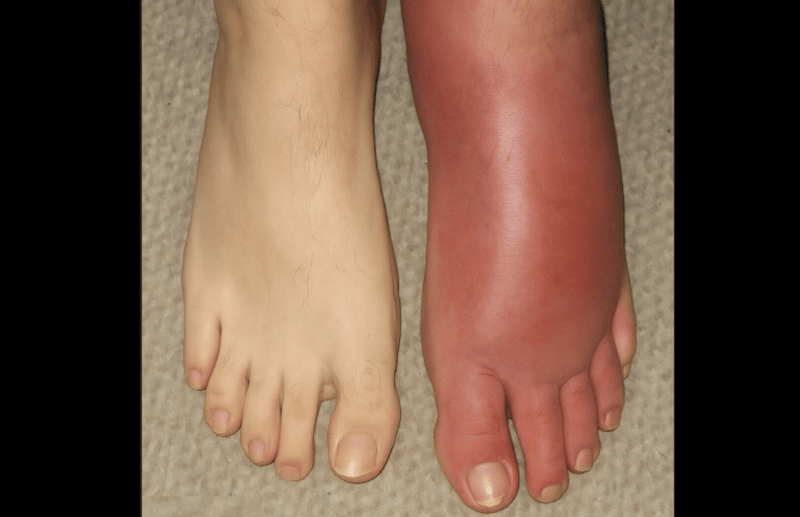Reaching 70 is a significant milestone, far more than a simple birthday. It’s a moment that often prompts a gentle reflection: How many vibrant years lie ahead?
You may find yourself wondering if your most fulfilling days are in the past or if new experiences, relationships, and energy still await. While the future remains unwritten, research and lived experience reveal that specific signs in your 70s can offer deep insights into your overall well-being — and how long you’ll continue to thrive.
The encouraging truth? You hold more influence over your health than you might realize.
Here are seven vital indicators that you’re aging with strength — along with practical steps to nurture your vitality, energy, and longevity through your golden years.
1. You Nurture Strong Social Ties
If you frequently call a friend to catch up, participate in community gatherings, or share regular meals with loved ones, you’re laying a foundation for a healthier future.
Why it’s important:
Meaningful social connections are among the strongest predictors of a long, healthy life. Seniors who maintain active social circles are less prone to depression, cognitive decline, or chronic health issues. In contrast, isolation can be as damaging as smoking 15 cigarettes daily, studies suggest.
What you can do:
- Engage with a local group, such as a book club or senior center.
- Schedule consistent meetups, whether in-person coffee dates or virtual calls with family.
- Explore volunteering opportunities to stay active and give back to your community.
Aging offers a chance to enrich your relationships and forge new bonds, keeping your world vibrant and connected.
2. You Move with Strength and Assurance
Can you cross a room without assistance? Climb a staircase? Stand up from a seat without using your hands?
These everyday movements are powerful markers of physical vitality and long-term health.
Why it’s important:
Ease of movement is closely linked to independence and safety. Staying mobile lowers the risk of falls, supports cardiovascular health, and strengthens muscles and joints. Those who remain active into their 70s and beyond often enjoy a higher quality of life.
What you can do:
- Commit to a daily 30-minute walk to keep your body active.
- Explore gentle exercises like chair yoga, tai chi, or stretching routines.
- Incorporate resistance bands or light weights to maintain muscle strength.
Your body thrives on movement — even small efforts can yield significant rewards.
3. You Fuel Your Body with Nutrient-Rich Foods
A hearty appetite paired with wholesome eating habits is a subtle but critical sign of vitality, especially after 70.
Why it’s important:
A diet rich in fruits, vegetables, lean proteins, healthy fats, and whole grains energizes your body, protects your heart, sharpens brain function, and supports healthy weight and blood sugar levels. Poor nutrition, conversely, can lead to fatigue, weakness, and increased illness risk.
What you can do:
- Kick off your day with a protein-packed breakfast, such as eggs or Greek yogurt.
- Add a variety of colorful vegetables to every meal for diverse nutrients.
- Stay hydrated, as thirst cues may become less noticeable with age.
Nourishing your body doesn’t need to be complex — consistency is the key.
4. You Maintain a Balanced, Steady Weight
There’s no ideal number on the scale, but how your body holds its weight — and whether it remains stable — speaks volumes about your health.
Why it’s important:
Significant excess weight can elevate risks for diabetes, heart disease, and joint issues. On the other hand, being underweight in older age may signal frailty, nutrient deficiencies, or hidden health concerns.
What you can do:
- Consult your doctor to determine a healthy weight range for you.
- Prioritize muscle maintenance over focusing solely on the scale.
- Steer clear of extreme diets, aiming instead for sustainable habits that promote balance.
Focus on building strength and maintaining steady habits, not chasing an ideal number.
5. Your Mind Stays Clear and Active
Do you recall names with ease? Solve problems efficiently? Follow discussions without losing track?
Mental sharpness is a strong indicator of healthy aging.
Why it’s important:
Cognitive decline isn’t a guaranteed part of aging. Keeping your brain engaged and challenged supports mental function and may reduce dementia risk. Those who stay curious and keep learning often enjoy longer, richer lives.
What you can do:
Dive into reading, whether books, articles, or audiobooks.
Challenge yourself with puzzles, crosswords, or word games.
Pick up a new skill, like a language, musical instrument, or craft.
Your brain thrives on activity — the more you engage it, the sharper it remains.
6. You Enjoy Restful, Rejuvenating Sleep
If you’re consistently getting 7–8 hours of quality sleep and waking up feeling refreshed, your body is signaling its strength.
Why it’s important:
Sleep is the body’s time to repair and restore. It supports immune function, memory processing, blood pressure regulation, and emotional well-being. Poor sleep in older adults is linked to higher risks of cognitive decline, heart disease, and depression.
What you can do:
- Stick to a regular sleep schedule, even on weekends.
- Limit screen time and bright lights in the evening to ease into rest.
- Create a calming bedtime routine with activities like reading, soft music, or herbal tea.
Quality sleep is a cornerstone of health — treat it as essential to your well-being.
7. You Prioritize Regular Health Checkups
Just as you wouldn’t neglect a car’s routine maintenance, your body deserves consistent care.
Why it’s important:
Routine screenings, blood tests, and doctor visits detect issues early, often before symptoms arise. Proactive care helps manage chronic conditions and enables timely interventions that safeguard your long-term health.
What you can do:
- Stay diligent with annual physicals, eye exams, and dental checkups.
- Keep a record of your medications and discuss any needed adjustments with your doctor.
- Act preventively — don’t wait for symptoms to prompt a visit.
Preventive care is your strongest ally in maintaining health, especially after 70.
Your 70s Can Be a Time of Renewal
Turning 70 isn’t about slowing down — it’s about embracing a different kind of strength.
A strength built on wisdom, experience, and the daily choices you make to live fully.
Perhaps you’ve faced health challenges or manage ongoing conditions. That doesn’t mean your best days are behind you — it means you’re still here, with the power to shape a vibrant future.
These signs aren’t a rigid standard of perfection. They’re a roadmap — gentle reminders that aging well is rooted in connection, movement, nourishment, and self-care.
No matter your past, you can always invest in your future.
Because thriving in your 70s isn’t about counting years — it’s about filling them with purpose, joy, and vitality.




